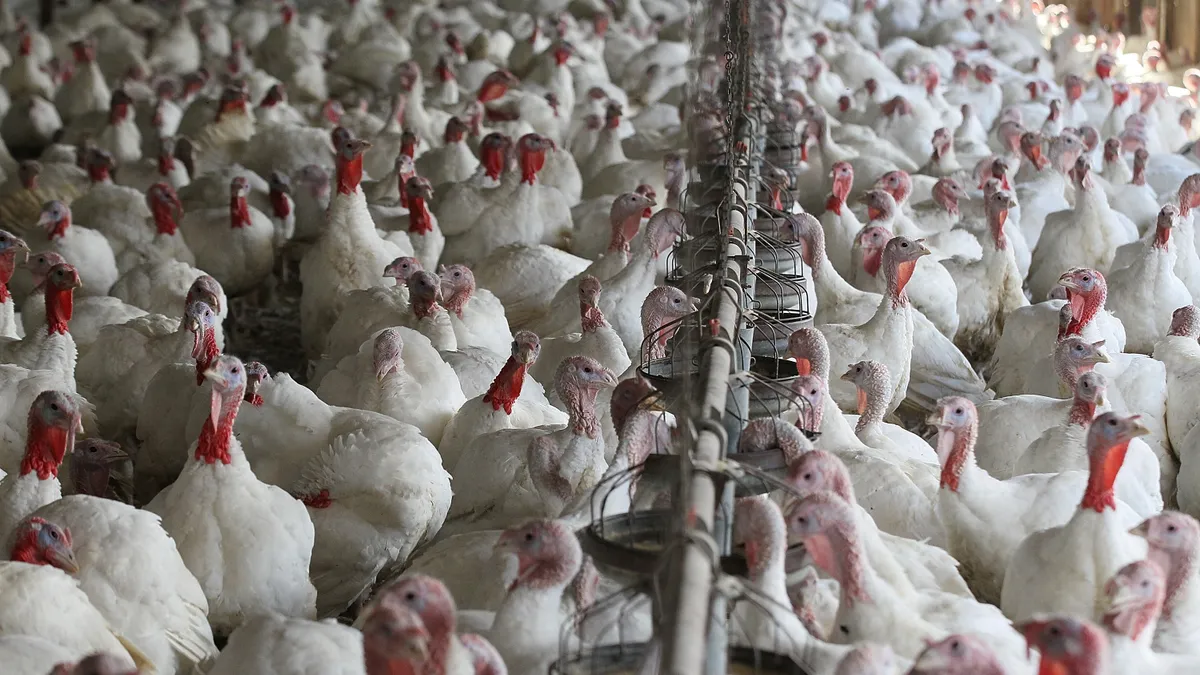Dive Brief:
- Hormel CEO Jim Snee said on its most recent quarterly earnings call that commodity turkey volumes decreased by 80% year-over-year. The company, which owns turkey brand Jennie-O, is facing reduced capacity in its turkey production facilities because of the ongoing impact of highly pathogenic avian influenza (HPAI).
- Despite supply issues, Snee said demand for turkey remains high, especially for value-added products. Hormel anticipates turkey volumes will improve in the second half of the year.
- Hormel’s issues with turkey reflect how poultry producers are navigating the difficult environment of meeting supply amid a deadly virus targeting the animals.
Dive Insight:
Hormel’s overall sales in the most recent quarter declined 2.4% compared to last year, according to the company’s earnings report. On the earnings call, CFO Jacinth Smiley attributed this drop to meat volatility.
Last March, Jennie-O announced that HPAI had infected turkeys in its supply chain.
On Hormel’s earnings call last week, the company said the virus led to a lower amount of birds that were commercially viable.
“We expect to improve meat availability in the back half of the year to drive higher sales volumes for our turkey business, offsetting the impact of market declines and higher feed costs,” Smiley said on the call.
Snee said the company was restricted from exporting turkeys during the past year, and diverted its raw turkey material domestically to help meet U.S. demand.
Consumers continue to be impacted by fewer available turkeys. Last November, the cost of a Thanksgiving turkey increased 23% over 2021, a Wells Fargo report said. And between January 2022 and January 2023, grocery prices for “other uncooked poultry,” which includes turkey, increased 14.2%, according to the Bureau of Labor Statistics’ latest Consumer Price Index.
The volatility is also taking a hit on Hormel’s bottom line. After the earnings call last week, the company’s stock dropped to hit its lowest price since September 2021. The Wall Street Journal noted last Friday the company’s stock had lost value for nine days straight, its longest losing streak since 2008.















